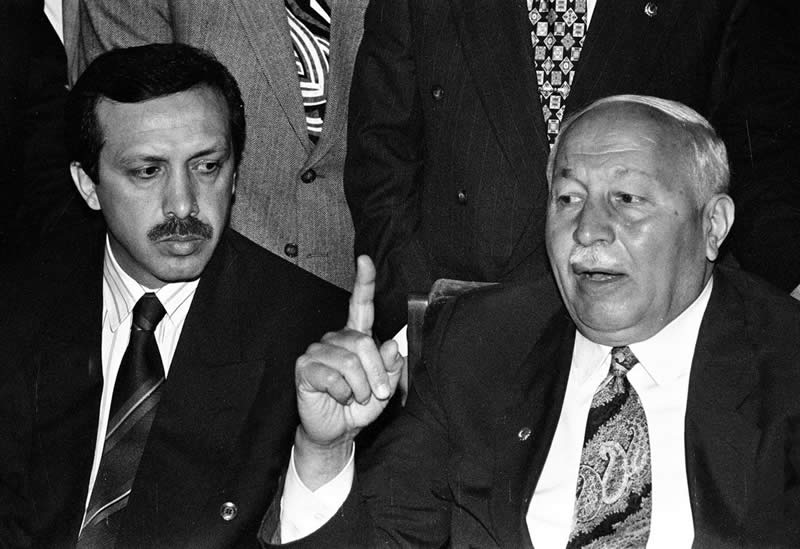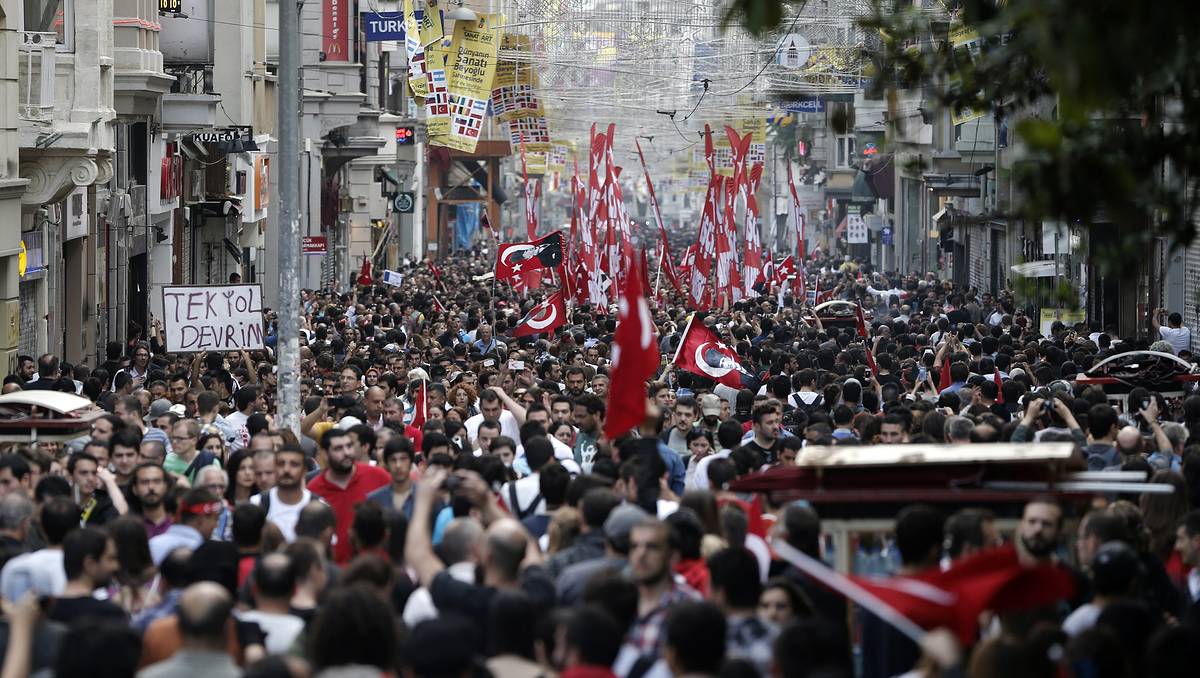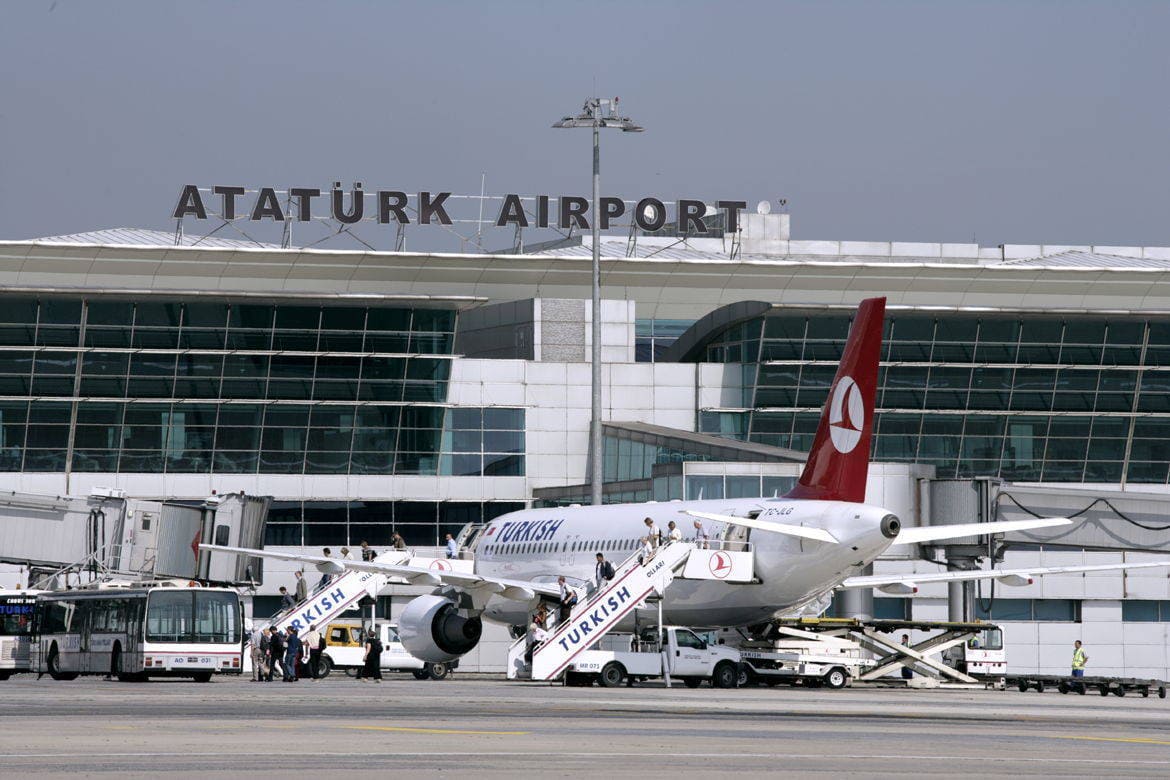After the May 28 elections, which ended in the victory of the current President Recep Tayyip Erdogan, he can be called a record holder in Turkish politics. Erdogan and his party have won eight national election campaigns, including three presidential ones. And even though this time politics could not be won in the first round, like the previous two times, Turkish citizens, who have been living under the leadership of the leader of the Justice and Development Party for 21 years, decided not to part with the 12th president of the republic for another five years.
Beginning of the reign: the road to the West
Few people remember that in 2002 Erdogan came to power on a wave of democratization of the country and the transition from military to civilian leadership. The moderate Islamist, on the eve of his triumph, broke with the trend of Milli Göruş (National Opinion), the pan-Islamic ideology of his teacher Necmettin Erbakan, an ardent anti-Westernist.

Erdogan promised Turkey accession to the European Union, lifting the hijab ban in universities and civil service, resolving the Kurdish issue and protecting the rights of LGBT people. For the first five years of his premiership, the politician kept his promises to the people. Western investors have flooded Turkey with money. Many sectors of the economy have been privatized. The Turkish lira showed stability: the local currency exchange rate for 10 years was less than 2 liras per dollar. Economic growth ranged from 5% to 9% per year.
For the first five years of his premiership, Erdogan kept his promises
Alarming signals appeared in 2006, when the government began to take control of institutions that, in Western democracies, in recent decades, on the contrary, were taken out of direct control of the executive branch. The Central Bank, the Commission for the Control of Financial Markets, the Public Television and Radio Company TRT – all these structures gradually came under the control of the Council of Ministers.
In the 2007 elections, Erdogan's party strengthened its position. In 2010, at the initiative of the parliament, where Erdogan had a majority, a referendum was held to reform the judiciary. As a result, the authorities got rid of the military courts, strengthened the position of the Supreme Council of Judges and Prosecutors, having the opportunity to appoint their proteges to many positions. In 2016, after an attempted civil coup by a former henchman of the politician, preacher Fethullah Gülen, Erdogan took control of the entire judicial vertical, and a year later, in 2017, he held another referendum in which Turkey became a presidential republic with limited parliamentary powers.
Taksim: change of course
The turning point in Erdogan's political biography was 2013. At the end of May, a small protest by environmentalists against cutting down trees in Istanbul's Gezi Park, unexpectedly for everyone, and primarily for the ruling elites, turned from an ordinary rally into a large-scale protest against the authorities. Hundreds of thousands of Turks took to Taksim Square, and following Istanbul, protests erupted across Turkey.

It took Erdogan a little over three months to disperse the Maidans. The politician accused the West of inciting the opposition to a coup. Ankara's relations with Western allies have cooled. Also in 2013, Turkey was refused by its NATO partners in its request to strengthen its national air defense. In response to Erdogan's claims that the country's eastern borders were at risk due to the war in Syria and instability in Iraq, the West provided Patriots for exactly two weeks and then withdrew them. Frustrated, Erdogan began to look for alternatives and turned his eyes to China and Russia.
Ankara's relations with Western allies cooled after protests in Taksim Square
Putin's Crimean adventure and the confrontation between Ankara and Moscow in Syria until 2016 kept the countries in opposing camps. The country's low points were reached in 2015, when a Russian plane shot down by the Turks led to the most serious crisis between states since Stalin's claims to the Bosphorus and the Dardanelles. Erdogan settled the conflict with Putin as peacefully as possible: he issued an official apology, paid compensation, and named a street in Ankara after the deceased pilot. Putin, apparently, appreciated the gesture, because already in 2016 Moscow supported Erdogan during the Turkish military putsch, while the West was waiting for the outcome of the coup. Since then, formal political relations between Erdogan and Putin have been replaced by personal ones. Despite pressure from the West, Turkey bought S-400 air defense systems from Russia, and, surrounded by Erdogan, they began to talk aloud about the possibility of withdrawing from the North Atlantic Alliance.
Present: economic instability
Economic instability in Turkey has been going on for 10 years. In the last two years alone, the lira has lost two-thirds of its value. The problem of impoverishment of the population is being solved by constant wage increases in the public sector and further spinning up the flywheel of inflation. Erdogan refuses to raise the discount rate, wanting to keep available loans in the construction business. The reserves of the Central Bank have long been exhausted, and now the state depends on periodic injections of currency from the Persian Gulf countries. Under what conditions and in what volumes Arab money enters Turkey, no one can answer. Russia is also participating in the rescue of the Turkish economy.
The reserves of the Central Bank have long been exhausted, and now Türkiye depends on foreign currency injections
Before the presidential election, Moscow granted Turkey a one-year deferral of $600 million in gas payments, but Putin may be doing another $4 billion in favor. Under what conditions Turkey is granted a respite is also a mystery. Former supporters of Erdogan, who adhered to a monetary policy, are in no hurry to return to his team. Star finance minister Mehmet Simsek twice refused to take a government post. While the country lives on the myth of the revival of greatness. The myth is illustrated by megaprojects implemented over the past 20 years: the third bridge across the Bosphorus and a tunnel along its bottom, the largest airport in Europe, opened in 2018 in Istanbul, dozens of bridges, autobahns and airports across the country.

Erdogan relies on "milli ve erli" (domestic and local). Their drones, electric vehicles, attack helicopters and the launch of next-generation satellites are the topics pro-government media give prime time airtime. 10 years ago, Erdogan promised citizens by the centenary of the republic to bring the country's GDP to 25 thousand dollars per person and make Turkey a member of the club of ten largest economies in the world. Less than half a year is left before the cherished date, and the country's GDP per capita is less than 10 years ago, and fluctuates between 10-11 thousand dollars. Turkey, which was one of the twenty largest economies, dropped out of this club and moved to 21st place.
However, the election results suggest that economic failures were not the determining factor. Even a large-scale earthquake on February 6 in the south-east of the country, which caused the death of 50,000 people and deprived millions of Turks of a roof over their heads, did not undermine the position of the leader, despite the fact that the press clearly heard accusations against Erdogan, who allowed construction with numerous violations.
The confrontation in the election race went along the lines of "friend/foe" and "metropolis/province". Alevi Kemal Kılıçdaroğlu did not become his own for the Sunni patriarchal majority. Erdogan lost the elections in the largest cities: Istanbul, Ankara, Izmir, Adana and Antalya, but the province is still winning, and the nationalist trend is becoming dominant in society. The country of 85 million has sheltered 10 million refugees from Syria, Iraq, Afghanistan and African countries in 10 years. Another three million Türkiye provides everything necessary in the Syrian security zone. Xenophobia has ceased to be a shameful phenomenon, and the mayors of some cities can well afford anti-immigrant slogans. Against their background, Erdogan looks like a liberal who cares about the unfortunate fellow believers and allows any foreigner to purchase property.
“We will be together not until Sunday, but until death”: how long can Erdogan stay in politics
Whether Erdogan will remain at the helm after 2028 is now the main question of the near future. The current third term of the CEC of Turkey was justified by the fact that his first term was still under the old Constitution. Therefore, the previous period was counted as the first term. Resetting deadlines in Putin's manner is still perceived in Turkey as wild voluntarism. But there is a loophole for maintaining power. The current Constitution provides for mandatory simultaneous re-elections of the Parliament and the President. If the Majlis decides to dissolve itself during the second term, then the second term of the ruling president, according to the Constitution, will be considered incomplete, and he can again participate in the elections. Thus, Recep Tayyip Erdogan can remain in power until 2033 without the annoyance of Western scrupulousness.
Despite the fact that the resetting of deadlines in the Putin style in Turkey is still perceived as wild voluntarism, Erdogan has a loophole
“Pazara kadar değil mezara kadar beraber” (We will not be together until Sunday, but until death) – these lines from the pop song of the beginning of the century Erdogan said the first after the announcement of his victory on May 28.


